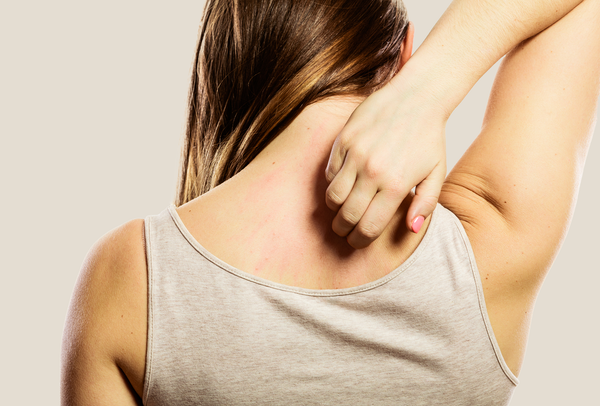As consumers, many of us are reading ingredient labels more than ever. This heightened awareness about what we put in and on our bodies can be attributed to both an increase in research surrounding the many chemicals we potentially come in contact with every day, as well as the media that’s constantly introducing this information to our inboxes and social-media streams. As with any “news,” we just want to remind you to always consider the source—and the science behind any reports that claim a particular haircare or skincare ingredient may have a potential impact on your health.
Science comes first at SEEN, and our founder, Harvard-trained dermatologist Dr. Iris Rubin, has the highest standards when it comes to the ingredients that are used in our products. At the same time, SEEN takes a firm stance against potentially “questionable” ingredients that is rooted in the scientific research that’s available to us today. From avoiding many common allergens and pore-clogging oils to sulfates, parabens, silicones, and more, Dr. Rubin is committed to creating luxurious, effective products that respect the health of the skin, hair, and the body as a whole. Which brings us back to phthalates…
What are phthalates?
Phthalates are a family of chemicals that can be found in hundreds of consumer products ranging from vinyl flooring, garden hoses, and plastics of many kinds—as well as personal-care products like soaps, shampoos, hairspray and more.[1] These chemicals are generally used to make plastic more durable, but they can also be used to help your shampoo or conditioner’s fragrance last longer.
What’s the issue with phthalates?
We are exposed to phthalates when we eat or drink foods that have come in contact with packaging that contains these chemicals, and we can even inhale phthalate particles in the air. When we use personal-care products that contain phthalates, they are introduced to the body via the skin.
Phthalates that enter the body are generally broken down and excreted in our urine, but the question is the impact these chemicals may have when they are within our bodies—and even years or decades after they are gone. According to the U.S. FDA, some types of phthalates have been shown to affect the reproduction system in animals—but the effects of human exposure to phthalates are not as clear, and more research is necessary to understand their potential impact.[1]
However, the main concern is that phthalates may act as endocrine disruptors that interfere with the body’s hormones. Among the potential health risks associated with phthalates that researchers are looking more closely at are reproductive problems, developmental issues, and an increased risk of certain cancers. For instance, this study showed a possible link between phthalate exposure and breast cancer, and this one raised concerns about the potential impact phthalates may have on male reproductive health.
How to avoid phthalates
Unfortunately, reading ingredient lists isn’t a guaranteed way to ensure your products are free of phthalates, as these chemicals can be part of the “fragrance” that is found in many formulations. If you want to avoid these ingredients, look for “phthalate-free,” “no phthalates,” or “free of phthalates” on the packaging.
Phthalates have always been at the top of SEEN’s list of ingredients to avoid, simply because so many questions remain about the potential health risks that have been associated with these chemicals. However, after using our products and experiencing the gorgeous hair and healthy skin, you’ll be saying, “Who needs phthalates?”
Dr. Rubin believes there’s no need for compromises (or potential health risks) when it comes to caring for the hair and skin. All of SEEN’s clean, vegan, cruelty-free products are safe for sensitive skin, won’t clog pores, available fragrance-free, and formulated without sulfates, silicones, parabens, dyes, pore-clogging oils, formaldehyde-releasing preservatives, gluten, or phthalates. This means you get all the upsides for your hair and skin without exposing either to ingredients that may do more harm than good.
[1] https://www.cdc.gov/biomonitoring/Phthalates_FactSheet.html#:~:text=Phthalates%20are%20in%20hundreds%20of,garden%20hoses%2C%20and%20medical%20tubing




